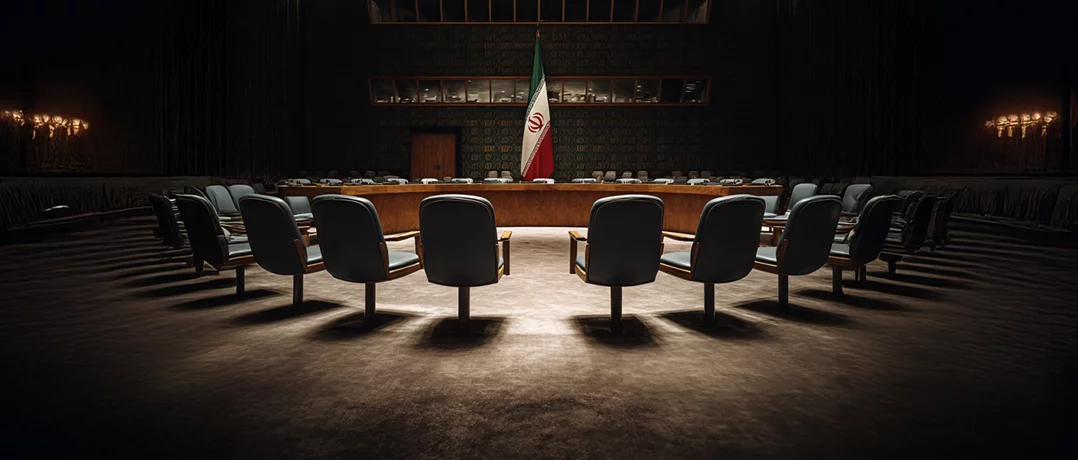The reactivation of UN sanctions on Iran through the “snapback” mechanism has ended prospects of reviving the 2015 nuclear deal, deepened rifts between Tehran and Europe, and heightened regional tensions as Washington and its allies press for new concessions.
“Snapback” revives sanctions.. diplomatic roads to Tehran blocked
“Snapback” revives sanctions.. diplomatic roads to Tehran blocked


The Iranian nuclear file witnessed a dramatic shift in recent days, as UN Security Council Resolution 2231 entered a new phase with the reactivation of United Nations sanctions on Tehran through the “snapback” mechanism. This reinstatement, which officially took effect on September 29, 2025, was triggered by the European troika -Britain, France, and Germany- effectively ending the waivers granted under the 2015 nuclear deal and extinguishing any realistic prospects of reviving the accord in its previous form.
The European powers, backed by the United States, emphasized the legality and necessity of the measure, citing Tehran’s continued non-compliance with nuclear commitments.
Tehran’s reaction
In Tehran, officials denounced the decision, arguing that the snapback was driven by “intense American pressure” on European allies. They described the early activation -before the expiry of certain restrictions- as a calculated maneuver to preempt Russia’s assumption of the UN Security Council presidency. Iranian officials now view all future negotiations with Europe as futile, insisting that talks can only lead to a dead end.
As for heightened talk of war -reports of U.S. aircraft deployments to the Middle East and Israeli speculation about renewed hostilities- Iran dismisses these as psychological operations. Yet, an A source from the Arab community inside Israel told Beiruter that the question of war remains “strictly political”, the army has multiple scenarios but requires political approval for any action. According to the same source, no negotiations will be possible without addressing the core disputed issues, foremost among them enriched nuclear material and Iran’s ballistic missile arsenal.
In parallel, Tehran recalled its ambassadors from the three European capitals for consultations, describing the European step as “irresponsible”. Meanwhile, Washington expanded its own sanctions, adding fresh measures against networks of individuals and companies linked to Iran’s missile and military production. U.S. officials reiterated that diplomacy remains on the table, but only if Tehran agrees to direct talks.
Sanctions and response
The reimposed sanctions cover an arms embargo, renewed restrictions on sensitive technologies and missile programs, and asset freezes targeting Iranian-linked entities in the financial and energy sectors.
Iran’s response was swift, officials rejected the measures as having “no legal basis”, while recalling ambassadors from Britain, France, and Germany. The Iranian rial plunged to record lows amid market fears of the sanctions’ impact. Speaking in New York, President Masoud Pezeshkian dismissed any talk of ending Iran’s nuclear program as “pure illusion”, stressing that dialogue is possible only if sanctions are fully lifted. A senior Revolutionary Guard commander threatened to extend missile ranges “if necessary”, underscoring Tehran’s readiness.
Although Russia and China opposed the snapback, the Security Council declined to extend the deadline, paving the way for the automatic reactivation of sanctions. Moscow, reluctant to alienate one of its key partners in confronting Washington, declared through its UN ambassador, Vassily Nebenzia, that it does not recognize the return of UN sanctions. At a press conference marking Russia’s assumption of the Council presidency in October, Nebenzia warned of worsening Middle East tensions, saying
We will be living in two parallel realities
U.S. tactic, Iranian framing
Inside Iran, officials describe the snapback as a politically driven move by Washington, both for domestic tactical reasons and to shape dynamics at the Security Council. An Iranian official told Beiruter that “the Europeans activated the mechanism on September 28 under U.S. pressure, rushing to impose sanctions before Russia assumed the rotating presidency”. He added that Tehran “does not recognize this step and considers it a new phase for Iranian diplomacy”, stressing that “any future talks with Europe are now worthless”.
The same official argued that U.S. negotiations are merely “time-wasting-circling in a dead-end loop”, since the most painful sanctions, particularly those on banking, are linked not only to the nuclear program but also to Iran’s support for regional armed groups.
Recalling Israeli strikes on Iranian sites in June, the official dismissed speculation about imminent attacks by Israel or the United States
What we hear about war is just psychological warfare. The snapback’s real aim is to create an atmosphere of fear around a phantom war
Financing terrorism debate
Amid its defiance, Tehran has quietly taken steps to signal flexibility to the international community. According to reports, Iran’s Expediency Council -one of the regime’s most influential institutions after the Supreme Leader- has given preliminary approval to join the Convention on the Suppression of the Financing of Terrorism (CFT). The move is seen as a concession under pressure to address accusations of financing regional proxies such as Hezbollah in Lebanon, the Houthis in Yemen, Hamas, Islamic Jihad, and Iraqi militias.
What next?
With sanctions now in place under both the UN and European umbrellas, Washington and its allies hold a strengthened legal and political mandate to pressure Tehran. Their immediate aim, sources say, is to force Iran into concessions -particularly on its ballistic missile program- before public negotiations resume.
Tehran, for its part, insists that there is no point in narrow nuclear talks, preferring instead to propose a comprehensive package of reciprocal steps, starting with the lifting of banking sanctions. This could further delay negotiations while giving Tehran the space to reset terms with Washington.
A Washington-based source told Beiruter that the current situation is unlike previous U.S. administrations “Trump, alongside Israeli Prime Minister Benjamin Netanyahu, is rushing to secure ‘victories’ ahead of the U.S. midterms and Israel’s parliamentary elections. Any delay risks sliding back into open conflict, with arenas stretching from Tehran to Sana’a and Beirut”.

